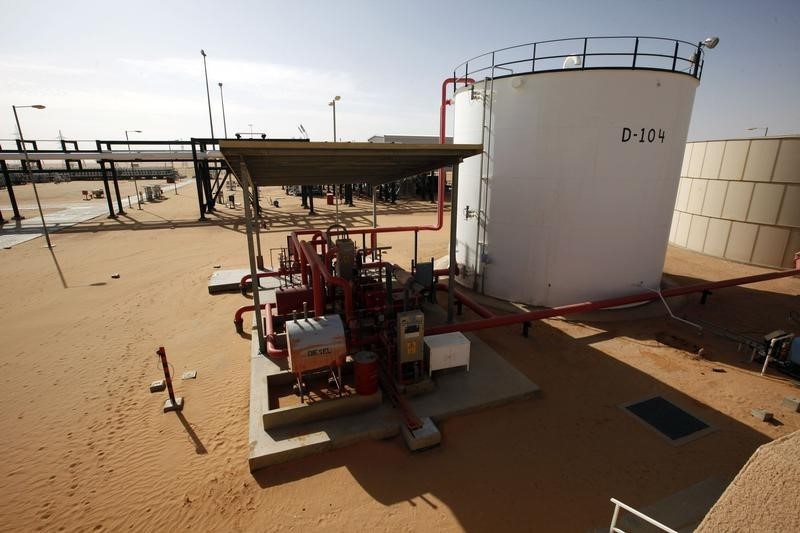By Nia Williams
CALGARY, Alberta, Nov 3 (Reuters) - A further delay or
outright rejection of the TransCanada Corp TRP.TO Keystone XL
project risks a looming capacity crunch on Western Canada's
pipeline network, causing more pain for producers already
struggling with weak global crude prices.
In the latest twist in the seven-year Keystone XL saga,
TransCanada on Monday asked the U.S. State Department to pause
its review of the permit, a move seen pre-empting a possible
rejection by U.S. President Barack Obama.
On Tuesday the White House said Obama wants to make a call
on the project by the end of his presidency.
An outright rejection would be a death knell for the
pipeline intended to ship 830,000 barrels per day of oil sands
crude to Nebraska and the U.S. Gulf Coast. Even if the requested
seven- to 12-month pause is granted, and permits are received,
the pipeline looks unlikely to start before 2019 at the
earliest.
By then Western Canadian supply, including the portion of
U.S. Bakken crude transported on Canada's pipeline network, will
likely have risen to 4.5 million to 5 million barrels per day,
according to the Canadian Association of Petroleum Producers.
Current takeaway capacity on the system is just over 4
million bpd and planned expansions by Enbridge Inc ENB.TO to
its Mainline system will bump that up to around 4.4 million bpd,
leaving rail to fill the gap.
Meanwhile, other export pipeline proposals including
TransCanada's Energy East and Enbridge's Northern Gateway look
no closer to getting approved.
The looming crunch would look a lot worse if not for the
global crude price collapse, which has slowed oil sands and
Bakken crude growth. Even so, it clouds the outlook for oil
sands producers, which have some of the highest production costs
globally as well as land-locked crude.
"There's less of a pinch point because of the reduced
production growth but there's still the need for additional
pipeline," said Judith Dwarkin, chief energy economist at ITG
Investment Research.
As well as market access issues, investors face weak oil
prices, high project breakeven costs, and royalty rate and
climate change policy reviews from the Alberta government.
Last week Royal Dutch Shell Plc RDSa.L cancelled its
80,000-bpd Carmon Creek oil sands project, citing lack of
infrastructure to move Canadian crude to market, as did Statoil
STL.OL in 2014 when postponing its 40,000-bpd Corner
project.
"Market access is a serious concern. It's absolutely front
and centre of any producer's mind when they commit to a
multi-billion dollar project," said Sonny Mottahed, chief
executive officer of boutique investment bank Black Spruce
Merchant Capital, adding more projects could scrapped because of
the Keystone XL delay.
In recent years pipeline bottlenecks in Alberta, the largest
source of U.S. crude imports, have at times blown the discount
on Canadian heavy crude out to more than $40 a barrel. With U.S.
crude languishing around $45 a barrel, many producers cannot
afford another capacity crunch.
"We would certainly like to see better market access because
there are pricing impacts on constraints to reaching markets,"
said Brad Bellows, a spokesman with oil sands producer MEG
Energy.
The delay validates moves by producers like Imperial Oil Ltd
IMO.TO and Cenovus Energy CVE.TO , who invested in their own
crude-by-rail terminals.
However rail is roughly $5 per barrel more costly than
pipeline and takes a larger chunk out of producer profits.
"As you can see from third-quarter earnings many companies
are losing money on production so that $5 becomes crucial," said
ARC Financial analyst Jackie Forrest.
(Editing by Lisa Shumaker)
